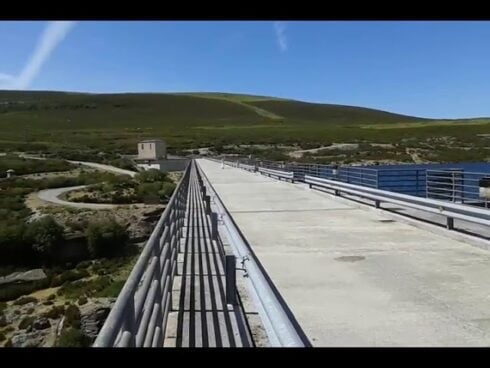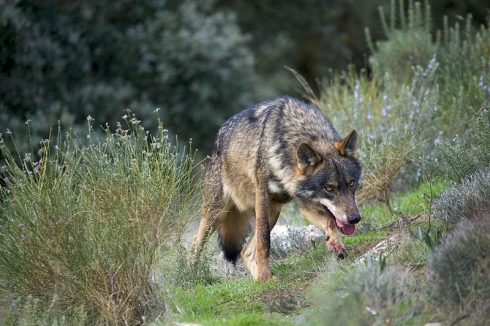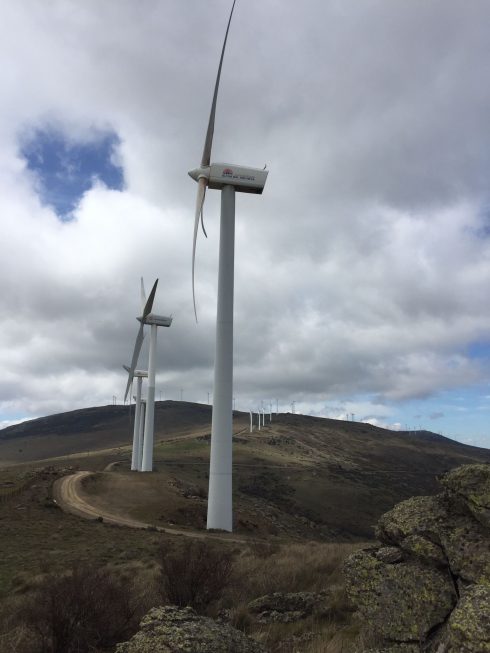IT has descended into a vicious, full-blown battle on the Seven Seas.
Boats have been sunk and men have been maimed in the fervent struggles out in the deep-blue Mediterranean Sea.
Yet the prize is not a bounty of gold, nor of territory, but the ever-diminishing fleet of red tuna.
Red tuna (also known as blue fin tuna) are fast becoming the ocean’s most highly-prized treasure.
As they become in shorter and shorter supply – indeed almost fished to extinction – their price continues to soar from the huge sums of money Japanese businessmen are prepared to pay for them.
A mainstay of fresh sushi, tuna has such high demand that some companies are prepared to pay huge sums of money to have planes buzzing over the Med in order to be the first to spot the last few shoals.
“If the quotas are being prematurely filled, the boats must be overly-equipped.”
Fortunately however, there is a force coming to their salvation. Both conservationists and now EU officials are confronting these practices – and more closely monitoring the vessels – as fears grow that the in-demand fish could be on the point of extinction.
“If the quotas are being prematurely filled, the boats must be overly-equipped”
So heated has become the debate, that last month open-sea swashbuckling reached new extremes when a Greenpeace protester was gored with a hook and his dinghy sunk after ambushing a fishing boat.
It came after the French crew reacted violently to the activist’s ill-fated attempt to collapse the tuna-laden net, just off the shores of North Africa.
Despite new European Commission (EC) quotas regulating the amount of tuna which can be fished, environmentalists are adamant that international trawlers continue to flout the law.
The under-fire fishermen are angry that 2006 directives have restricted them to just one month’s tuna trawling a year.
On top of this, if within that window of opportunity, some 13,500 tons of tuna are caught, then the fishing porthole is slammed shut regardless.
But that is the problem. Environmentalists are convinced that the wily fishermen knowingly surpass their quotas and fish out of season, profiting from lax surveillance.
The directives came into force when a recent study estimated that tuna stocks had plummeted from 300,000 tons in 1970 to just 100,000 today.
This year, the fishing deadline was brought forward from June 15 to June 10 after the 13.500 ton EU limit was prematurely met.
For fishermen, it is sure-fire evidence that the legislation is now beginning to pay off.
Many believe that once dwindling numbers have now been stabilised thanks to the measures.
“The fact that we met the EU’s quota so quickly can only mean one thing: the red tuna recuperation plans and the control systems are working,” explains Juan Serrano, director general of Grupo Balfego, which owns four of the six Spanish tuna fishing trawlers.
However, conservationists and officials are quick to disagree with this positive take on the turn of events.
“If the quotas are being prematurely filled, it only means that the boats are overly-equipped with fish-seeking technology,” insists Raul Garcia, Spanish spokesperson for the WWF.
“How can you compare the almadraba to the latest technology-filled vessels?”
Either way, it has led to unprecedented scenes in the Mediterranean Oceans as EU inspectors survey the waters, flanked by Greenpeace dinghies with helicopters circling overhead, keeping a weather eye on the fishermen.
For, as a spokesperson for the Community Fisheries Control Agency (CFCA) warns: “Three years ago this was a tuna jungle but, in international waters, nobody is inspecting anything.”
And the battle to ensure the long-term survival of tuna stocks has now become more difficult after a breakdown in global talks designed to ensure their conservation.
“How can you compare the almadraba to the latest technology-filled vessels?”
Much of the developing world, spearheaded by sushi-loving Japan, outrightly rejected any proposals to grant the fish stronger protection.
Only the United States, Norway and Kenya gave their full backing to the motion forwarded at the Convention on International Trade in Endangered Species (CITES).
Somewhat disgracefully, the EU abstained, asking for the introduction of the rule to be delayed until May 2011.
Dr Sergi Tudela, head of fisheries at WWF Mediterranean, fumes: “After overwhelming scientific evidence and growing political support in past months, it is scandalous that governments did not even get the chance to engage in meaningful debate.”
Meanwhile, as the debate rages on regarding the trawlers, their rumoured rule breaking and the deadlocked talks, spare a thought for the few, honest fishermen who have stayed true to their ancient technique here in Spain.
Cadiz fishermen are still practising their tried and trusted method, known as the ‘almadraba’, which dates back to the Phoenician times, before the Romans.
Setting up close to the coast – for example in Conil, Tarifa and Barbate – red tuna fisherman have historically taken out giant nets into the waters to catch the fish as they head in and out of the Straits of Gibraltar.
They have branded it a “grave injustice” that they have also been stung by the quotas dished out for the giant trawlers.
At the time, the mayor of Barbate Rafael Quiros, bemoaned: “How can you compare the almadraba, an ancient type of fishing, which is sustainable and respectful towards the species, with the industrial fishing of vessels, which through the latest technology pursue the tuna all over the oceans?”
Yet, despite the initial anger, this year’s catch for the traditional fishermen was four-times greater than last year and double the past ten-year average.
In fact, the almadraba technique was so successful that reportedly many tuna had to be released back into the ocean.
Nevertheless, despite the recent bounty – arguably linked to the EC quotas – Spain is still taking some innovative, yet controversial, steps to ensure its fish stocks continue to flourish.
For the country, which eats the most fish in the EU, is now casting out its rod to aid one of its fastest-growing industries – known as ‘aquaculture’.
In short, it involves fish being born, reared and culled within holding tanks.
Cadiz fishermen are still practising their tried and trusted method, known as the ‘almadraba’, which dates back to the Phoenician times, before the Romans.
Heavily criticised for the pollution caused by fish waste and the impact of harnessing raw materials sourced from the sea, Spanish officials are now hell-bent on putting the sparkle back into these fish farms.
Authorities are set to prohibit the use of pesticides, herbicides and fungicides as well as introducing a limit on the number of fish allowed per square metre.
There are already 19 farms in Cadiz, Malaga and Granada and, in total, Andalucia produces some 7,000 tonnes of fish a year.
Fuelling this, two new measures have been introduced by the Agriculture and Fishing Agency, which aim to encourage new producers to enter this new-found environmentally-friendly fishing field.
It has confirmed it will subsidise up to 50 per cent of any projects that implement ecological productions and further funding is also up for grabs after an agreement was set up with ethical bank Triodos.
Just last month, it was announced that Barbate town hall had, for the first time, historically acquired land from the army to use for a proposed fish farm.
And in Agua del Pino de Cartaya, in Huelva, pilot schemes are already in place to use year-round solar energy to control the temperature in the growing pools.
Certainly, Andalucía has all the attributes to become a major player in the world of aquaculture.
In a time of debate, strife and even violence regarding the fishing of the endangered red tuna, an organic fish-farming method to rear them might be the species salvation.
The resources and government backing are plain to see.
But it remains to be witnessed if Andalucia will take the bait.









There’s a great list of fish deemed sustainable to eat in Spain on the Spanish World Wildlife Fund website.
Click here…
mmmmm, i love sushi…..